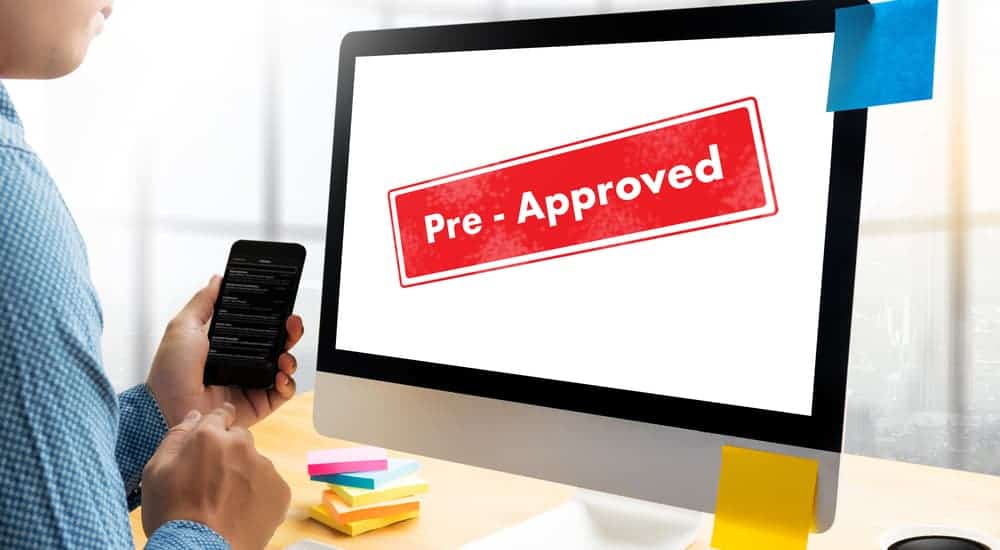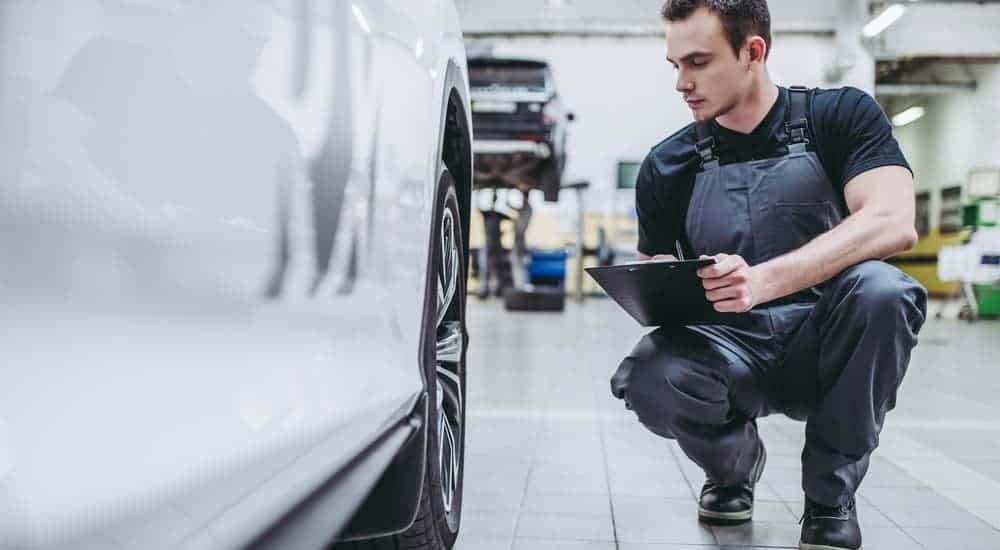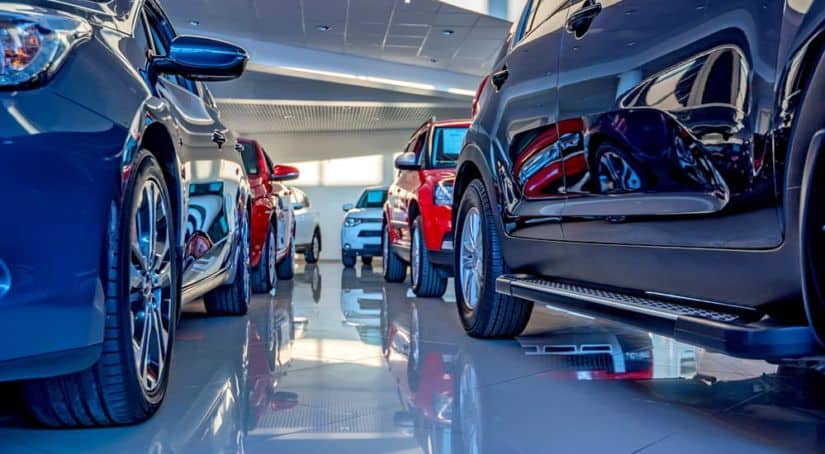It’s going to happen sometime, whether you’re shopping for a replacement car for your old and less-than-reliable vehicle or thinking about downsizing from the family van now that the kids are grown. Maybe you’re even looking to equip the proud new driver in your family. Whatever your reason is, you want to buy a used car, and you’re looking for shopping tips.
Great!
You already know that a used car can be an economical, sensible alternative to your transportation dilemma. Buying a brand-new car isn’t always the right financial decision. Not that there’s anything wrong with a shiny ne w car, but a well-maintained lightly used car has all the function and utility of a new car at a fraction of the price.
When you’re shopping for a used car, you’re still looking for the same things a new car buyer looks for: a reliable car from a reputable dealer with excellent customer service and a solid reputation for reliability. Don’t be afraid to hold your car dealer to a high standard. Buying any car is a big commitment. You want the dealership you choose to have excellent customer service, great reviews, and a used car inventory wide enough to give you plenty of choices.
Once you’ve done your research and found a dealership you want to work with, follow these shopping tips for used cars to find the best-used car for you.
How to Buy a Used Car
Shopping Tip #1
Decide your budget. A general rule of thumb is to pay about 10% (or more) of the car’s price, then finance the rest. Smart shoppers try to pay off their car loans as quickly as possible. Don’t let yourself fall for a car you can’t really afford, or you’ll find yourself struggling with paying for other car expenses, like registration and repairs.
Shopping Tip #2
Get pre-approved. You don’t want to find the perfect car for you only to get turned down for a car loan. Car shopping is stressful enough. Once you’ve set your budget and take the time to get yourself pre-approved, your used car shopping will go a lot more smoothly.

Pro-tip #1: While dealerships can provide financing options, you’ll usually find better rates with your credit union if you have one.
Pro-tip #2: If you have no or poor credit, Buy Here Pay Here dealerships offer shoppers poor credit financing.
Shopping Tip #3
Do your research. Doing a little research on makes and models you think you like will help you avoid the “buying on looks” problem that a lot of people run into. You’ll also avoid buying a car that has a known recall or defect.
You’ll want to head over to Consumer Reports and read the annual auto issue. Another good resource is Kelley Blue Book’s Guide to Used Cars. Both will give you a general value of your potential car. But once you get a general value, you’ll want to check out Autotrader to see what is available.
Which brings us to…
Shopping Tip #4
Check insurance rates. It’s a good idea to do this step while you’re getting pre-approved (you did do that, right?). After all, used doesn’t necessarily equal lower when it comes to insurance rates. If you’re going from a minivan to a zippy sports car, your rates will go up. On the other hand, if you’re going from a late-model car to an older one, you might be pleasantly surprised.
Either way, check rates with your insurance company before you sign on the dotted line. That way, you don’t get any surprises.
Shopping Tip #5
Take a real test drive. Once you’ve narrowed your used car choices to a few good candidates, you want to schedule test drives.
Make sure they’re long ones.
You’re going to be using this car for quite a while, so why would you base your buying decision on a quick drive around the block? Drive around a lot of blocks. Heck, get on the freeway. Really put your new potential best friend through the paces. It’s not rude to insist on this step; it’s smart. Sometimes a short drive won’t reveal a lurking problem. If your new potential car tends to overheat 5 miles into a trip, you’d want to know about it, right?
Shopping Tip #6
Get an inspection. We’re talking an independent inspection, not one provided by the seller. You’ll need to pay for this out of pocket, but the cost isn’t too much, and the $100 to $200 you spend on an inspection can potentially save you thousands if the car you’re considering buying turns out to have significant problems.
Any independent mechanic you choose should have an Automotive Service Excellence certification. It’s easy to find one at a garage that participates in the Blue Seal program.
Pro-tip: Getting an inspection is especially necessary if you’re buying from a third-party seller. A good mechanic providing a thorough inspection will protect you from getting taken in by illegal dealers selling cars with flood damage or other invisible-to-the-naked-eye electrical problems.

Shopping Tip #7
Run a Vehicle History Report. Not all used cars are created equally. Once you’ve found a car (or two) that you’re interested in, you should run a history report.
Don’t worry, unlike an inspection you can get this for free. Your options for vehicle history reports are:
- Ask the dealership to run a vehicle history. Dealerships have free access to CARFAX, Autocheck, and/or autoDNA. A good dealer will be more than happy to provide you a report on your potential new car.
- If you don’t want to ask your dealership for some reason, you can research your used car on your own. Here are a few other free websites which might be useful to you.
- NCIB (National Insurance Crime Bureau) will tell you if your new car has ever been reported lost or stolen, if it’s ever been salvaged, or if it was involved in an accident and declared a total loss. (Note: only five (5) searches can be done per IP address within a single 24-hour period).
- Vehicle History is another free VIN lookup that’s pretty darn comprehensive. Enter your VIN to find your car’s selling history, current recall information, expiration of manufacturer warranty, and even price predictions about the best time to buy.
- iSeeCars is a lot like VehicleHistory, except it adds a price history and analysis feature, projected depreciation, and the best times to buy and sell your vehicle. Just plug in your VIN and get your information.
Pro-tip: It’s possible for a car to have had serious repairs that don’t show up on a VIN report. Self-paid repairs aren’t always flagged on VIN histories. Use any VIN reports with the knowledge that the information isn’t always 100% accurate.
Shopping Tip #8
Be prepared to negotiate. If you’re following our tips, you already have the information you need to negotiate a good deal. You know what car you want and how much it’s worth wholesale in your area.
You also know that a dealership usually asks for about 20% more than they paid for the car you’re interested in.
Use that knowledge. Be willing to haggle. Offer 15% below asking price. The dealer may counteroffer, but if they do, you can offer 10%.
Remember, your goal is to buy your car as close to the dealer’s wholesale price as possible. The dealer’s goal is to sell cars as quickly as possible, which does give you some wiggle room on the price.
Don’t ever be afraid to walk away if negotiations don’t go the way you’d like. Be flexible. You want a car, but there are plenty of used vehicles out there. Being flexible will save you a headache.
Shopping Tip #9
Finalize the details properly. Once you’re ready to buy, there are a few things you should do before you sign those sale papers. Hold on. You’re almost there!
- Check if there’s a warranty on your new car and if there is, check how much time it has left.
- Add the car to your insurance policy before you take ownership.
- Check to see if there are additional fees are in your contract (You’ll definitely have your state sales tax, registration, and dealer documentation fees in there). If a fee can’t be explained, ask for it to be removed from your contract.
- Make sure you get your car’s title and have the seller sign it.
You don’t have to stress just because you want to buy a used car. With our nine tips for buying a used car, you’ve got all the information you need to make your buying journey as easy as possible.



